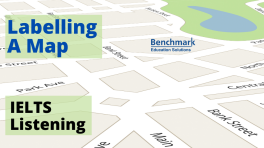IELTS Listening Test Queries – Get Answers To All Your Doubts
- 0 Comments


Some people find IELTS listening to be very difficult and others find it quite easy. It depends on your study habits and exposure to the English language. But whatever the case, in this article you will find answers to some of the most common questions and concerns about this part of the test.
Table of Contents
- What is the format of the IELTS listening test?
- Are all the questions equally challenging?
- Does the exam differ between the academic and general tests?
- What sort of questions will be asked?
- What sort of accents will appear?
- Can you read the questions before listening?
- Will the answers all come in the same order?
- How important is spelling?
- Can I use capital letters?
- Final words of advice
What is the format of the IELTS listening test?
In IELTS listening, you will sit in an exam room and listen to various recordings. On a piece of paper or a computer screen (depending on which form of IELTS you choose), you will be presented with a list of questions to answer.
Although it is impossible to predict the questions and content of the test, there are some consistent qualities. The test is comprised of four sections and they each have certain things in common:
Section 1: This is a conversation between two people on an everyday subject. The questions will be about things like numbers, names, and spellings.
Section 2: This will follow on from the previous section, but here only one person will speak. They will talk at length and you will have more difficult questions to answer.
Section 3: This is another conversation. It will relate to an academic situation and so frequently it is set in a tutorial. There will probably be 3-4 people speaking in this part.
Section 4: This follows on from section 3 but it will only feature one person speaking. The topic of the previous section will probably be addressed at length here. It is often a lecture, so be prepared for a long-winded talk.
Are all the questions equally challenging?
Like the IELTS speaking test, this part of the exam gets progressively more difficult as you go through it. In theory, section 1 is very easy and section 4 is very difficult. This is due both to the content that you must listen to and also the questions that will be asked.
These tests are designed so that you can get comfortable with the relatively simple questions at the beginning, then deal with the most difficult parts later when you are accustomed to the material. Being aware of this can help you to cope better on exam day.
Does the exam differ between the academic and general tests?
IELTS listening is actually the same for both academic and general candidates. This might appear surprising given that sections 3 and 4 are set within an academic context, but you do not actually need academic skills or experience in order to do this part of the exam. You just need to be able to pick out the answers without knowing anything about the subject matter.
What sort of questions will be asked?
Although cannot predict the questions that will be asked, there are some common question types that you can prepare for. Some of these will appear in almost every example, such as multiple choice questions. Generally, the most common question types for IELTS listening are:
- Multiple choice
- Matching
- Labelling tables/ maps/ etc
- Completing forms/ summaries/ tables/ etc
- Short answers
- Sentence completion
These types of question are asked in order to test different skills. For example, matching questions may give you two different columns of options and you need to listen for specific details and then choose the right answers. This tests your close listening skills.
What sort of accents will appear?
When people think of English, they might think of Received Pronunciation (RP) or a Mid-Atlantic Accent. Some people want a British accent and others want an American one. However, English is an international language with many different accents. IELTS listening will reflect this.
In this exam, you should be prepared to listen to recordings performed by people of all different backgrounds. Commonly, you will hear American, English, Scottish, Irish, and Australian accents, but there are often others. None of these will be excessively strong. For example, you would not be expected to decipher a thick Irish accent. Everyone will speak in relatively clear English, using standard pronunciations.
Can you read the questions before listening?
You should not open your exam papers until you are told, but once the exam begins, you can read ahead. Thankfully, the IELTS listening recordings will contain some straightforward instructions for you to follow. These will tell you when and where to read.
One thing that they will tell you is to look ahead at the next set of questions. The speaker will tell you which questions to read and how long you have. You should then spend that time quickly reading the questions in order to get an impression of what you might hear.
At this stage, you should look for content words, figure out the type of question, and mentally prepare for the next recording. Do not look too far ahead or you will lose focus in the next section.
Will the answers all come in the same order?
The answers to the questions provided will be in the same order as the questions on the answer paper. This is very important to understand because, if you hear the answer to the next question, you know that you have missed the answer to the previous one.
Knowing this is a huge advantage. Remember that there are 40 questions and so you should not dwell on ones that you missed. Scan ahead in the questions, thinking about possible answers, and if you hear a later answer, do not waste your time with ones that have already been given. If you miss one question, it is not a big deal, but spending too long on it might mean missing three or four questions.
How important is spelling?
Spelling is very important in IELTS listening, as it is in other parts of the test. When you hear a word spoken and know that it is the right answer, you should record it accurately. Unfortunately, if you make a mistake in spelling, it will be worth zero points. This is the same as getting the answer completely wrong. There are no half marks.
Fortunately, the questions in this part of the test will not require you to spell very difficult words. They will be common, everyday words and any difficult ones (like names and addresses) will be spelled out for you to listen and write.
Note: Both British and American spellings will be accepted in all parts of the IELTS test. Similarly, you can write “8” or “eight” and both would be considered correct. Some people find that writing “8” is better because it is less likely that they would make a spelling error, like “eigth.”
Can I use capital letters?
It acceptable to use standard capitalisation or full capitals. That means you could write “New York” or “NEW YORK.” However, you should avoid inconsistent or incorrect capitalisation. For example, do not say “New york” or “new York.” These would be wrong.
Final words of advice
It is important to practice often before your IELTS listening test. People who regularly listen to English (TV shows, movies, podcasts, lectures) will find it much easier than those who don’t, so consider investing some time in this area.
You should also formulate a coherent plan for preparation. Do some practice tests so that you are familiar with the format of the exam and understand the most common question types. See how many questions you can get right in practice tests and then try to improve upon that over time.














